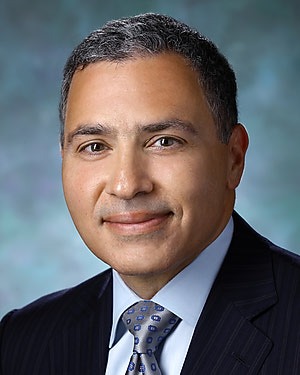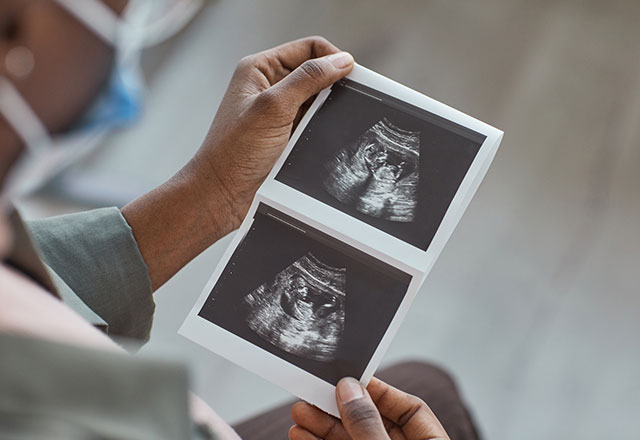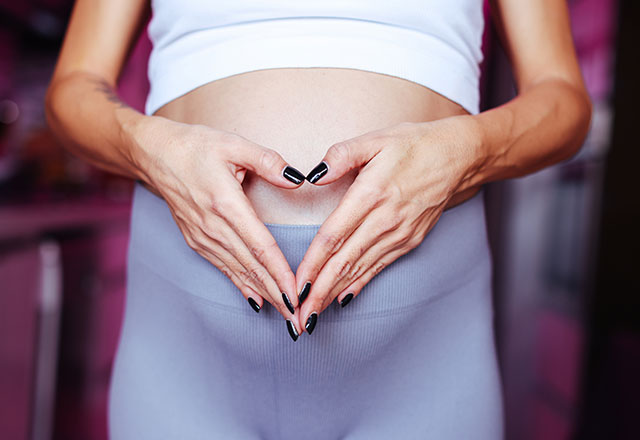-
Amanda Nickles Fader, MD

- Vice Chair of Gynecologic Surgical Operations, Johns Hopkins Health System
- Professor of Gynecology and Obstetrics
-
James Stuart Ferriss, MD

- Director, F.J. Montz Gynecologic Oncology Fellowship Program
- Associate Professor of Gynecology and Obstetrics
Uterine Transplant Program
Uterine transplant surgery can help women who are either born without a uterus or who have undergone a hysterectomy (uterine removal) for a benign or cancerous medical condition. A successful transplant can be life-changing for the recipient, offering a fertility solution to women born without a uterus or women whose uterus had to be removed.
Our multidisciplinary team provides comprehensive care and treatment for patients who qualify as candidates.
Why Choose Johns Hopkins for Uterine Transplant Surgery
State-of-the-Art Transplant Procedures
Multidisciplinary Treatment
The Path to Parenthood
Comprehensive Compassionate Care
Frequently Asked Questions About
Uterine Transplant Surgery
Learn more about uterine transplant by reading answers to frequently asked questions about the procedure.
-
Select women between ages 20-40 with uterine factor infertility will be screened and considered for the procedure. Additionally, women participating in the clinical trial must be non-smokers in good health, have a body mass index <30 kg/m2 and have no contraindications to being on immunosuppressive medications and have embryos created by in vitro fertilization and available for future embryo transfer.
-
Yes, a uterus can be donated from a living or deceased donor. At Johns Hopkins, we perform living donor uterine transplants. A living uterus donor gives up her uterus for transplantation to a female recipient. Potential donors are women ages 30-50 who are in good health and have a BMI <30 kg/m2. They must have no medical history of diabetes, cancer in the last 5 years, HIV, Hepatis B or C, gonorrhea, or chlamydia.
-
The risks of the uterine transplant surgery include bleeding, infection, injury to nerves, blood vessels, bowel, bladder or ureters, uterine transplant rejection, and side effects from immunosuppressive medications, including diabetes and renal damage with long term of use. Additional risks following successful transplant include maternal and perinatal risks of a subsequent pregnancy.
-
The donor surgery is performed via a minimally invasive approach with robotic surgery. The risks of the surgery include bleeding, infection, injury to nerves, blood vessels, bowel, bladder, ureters.
-
Once the transplant recipient heals from their surgery, pregnancy can be considered. Typically, a minimum of 6 months of recovery after transplant surgery is recommended.
-
The uterus will be removed after child-bearing is complete.
Meet Our Team
Dr. Amanda Nickles Fader leads the Uterine Transplant team.
Gynecologic Oncology Surgeons
-
Salih Colakoglu, MD

- Director of Oncologic Reconstruction
- Assistant Professor of Plastic and Reconstructive Surgery
-
Damon Cooney, MD PhD

- Clinical Director, Face Transplant Program, Johns Hopkins Comprehensive Transplant Center
- Associate Professor of Plastic and Reconstructive Surgery
-
Rick Redett, MD

- Physician-in-Chief, Johns Hopkins Medicine
- Professor of Plastic and Reconstructive Surgery
Benjamin Philosophe, MD PhD

- Surgical Director, Comprehensive Transplant Center
- Professor of Clinical Surgery
-
Valerie Lynn Baker, MD MPP

- Director, Division of Reproductive Endocrinology and Infertility
- Professor of Gynecology and Obstetrics
-
James Segars, MD

- Director, Division of Reproductive Science and Women’s Health Research
- Professor of Gynecology and Obstetrics
-
Jeanne S. Sheffield, MD

- Director of the Division of Maternal-Fetal Medicine
- Professor of Gynecology and Obstetrics
-
Maureen Marie Gilmore, MD

- Medical Director, Neonatal Intensive Care Unit, Johns Hopkins Hospital
- Assistant Professor of Pediatrics
Expertise: Neonatology
-
William Christopher Golden, MD

- Medical Director, Newborn Nursery, Johns Hopkins Hospital
- Associate Professor of Pediatrics
Expertise: Neonatology








